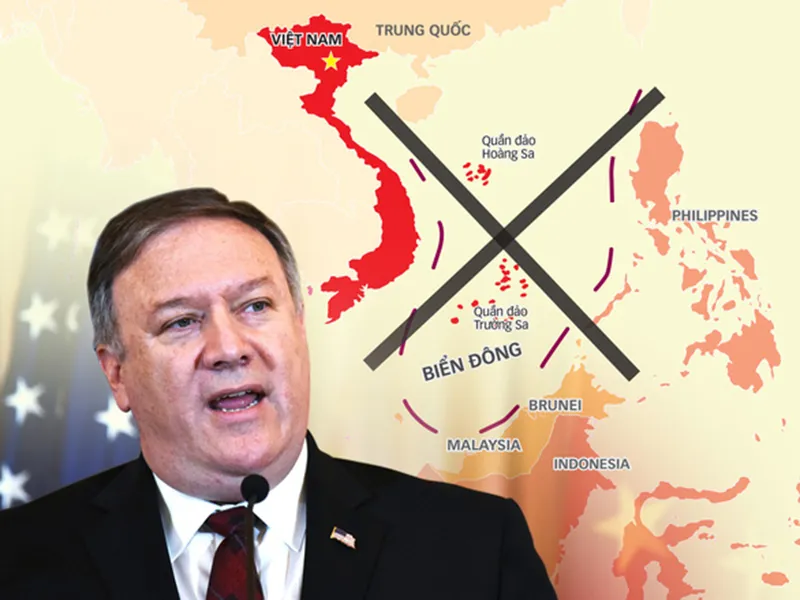US's position on South China Sea: Strong and clear like never before
It is basically the first time the US has publicly considered China's territorial claims in the South China Sea illegitimate with tone and words which were strong and unequivocal like never before.
The stormy relationship between the United States and China have shown no signs of calming down. It has become even more turbulent than ever over the last many decades. The noteworthiest among their many expressions was the US’s tougher stance on China's actions in the East Sea (internationally known as the South China Sea) when it rejected China's territorial claims here.
US Secretary of State Mike Pompeo has rejected China's nine-dash line in the South China Sea |
US Secretary of State Mike Pompeo stated that there was no legal basis for China's claims over the sea and accused Beijing of using intimidating tactics against other claimant states. His words used in his statements are strong and self-evident: "We are making clear: Beijing's claims to offshore resources across most of the South China Sea are completely unlawful, as is its campaign of bullying to control them".
He went on to send an assertive message to China: "The world will not allow Beijing to treat the South China Sea as its maritime empire." Two days later, he paraphrased it by announcing that the United States would "support countries all across the world who recognize that China has violated their legal territorial claims as well – or maritime claims as well." That would mean the inclusion of the South China Sea.
It is basically the first time the US has publicly considered China's territorial claims in the South China Sea illegitimate with tone and words which were strong and unequivocal like never before. Consequently, the move implies a major shift in the US's policy towards China and its strategy for the South China Sea region. It mirrored a new extent in this bilateral relationships and indicated an uneasy time ahead for this relationships generally and between the US and China in the South China Sea in particular.
The US is now adopting a new approach to the legal situation and to the political constellation in the South China Sea. Now, it obviously believes that something needs finally to be done to make China understand that it couldn't do anything there at will. The US and China won't let direct military crashes between them in this region happen. This US new political and strategical switch will have profound impacts on all states bordering the South China Sea which are challenged by China's territorial claims and actions. China will soon try to court them, first of all the Philippines, not to ally with the US and certainly will not drop its territorial ambitions there.












